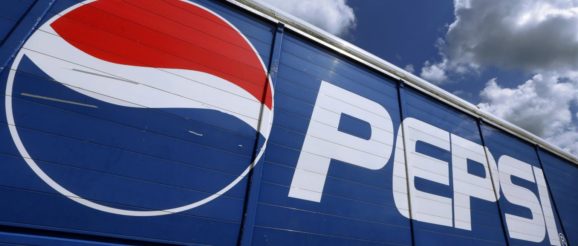PepsiCo’s spending $5 million to bring innovation to Indian farms


Snacks and beverages giant PepsiCo has time and again been accused of over-exploiting water resources in India.
The bottling plants of the fizzy-drink maker are said to be water guzzlers. Last year, the company, along with rival Coca-Cola, faced public protests in the southern state of Tamil Nadu over the issue.
But as consumers across the world become increasingly concerned about what happens from farm to fork, food and beverage (F&B) companies are compelled to enable sustainable agricultural methods.
At PepsiCo, Christine Daugherty heads a team tasked with ensuring responsible agriculture sourcing solutions—or using crops farmed through less resource-intensive methods.
PepsiCo India has been sourcing large volumes of potato and rice for its brands such as Lay’s potato chips, Kurkure corn snack and Quaker Oats for close to three decades now. It works with over 24,000 farmers in states like Uttar Pradesh and Rajasthan.
Now it wants to take this a step further. The company has launched pilot programmes to digitise its supply chain by connecting the farming community with its in-house agronomists using tablet computers. This will help farmers manage their crops, and receive agriculture-related advice, besides helping the company monitor yields better.
PepsiCo plans to invest $5 million (Rs36 crore) in its agriculture supply chain in India over the next few years.
Quartz spoke to Daugherty, global vice-president for sustainable agriculture at PepsiCo, about the company’s water usage and why consumers are pushing firms to be more transparent.
How important is sustainability across various verticals of your company?
Consumers today want to know where the food they consume is sourced from and even possibly connect to the farming community. So for PepsiCo, having that transparency is critical. And as part of our sustainable agriculture programme, if we are working closely with our farmers on good practices, then we have built that relationship with the farmer. We now know they are producing those products responsibly. For some of our products, we have to go through brokers and traders. We partner with them to make sure everyone along the value chain is producing responsibly.
What kind of innovations do you plan to implement in your engagement with Indian farmers?
Digitisation is something we are looking at in a big way.When we started sourcing from India, many years ago, we would rely on manual inputs. To transfer information (regarding crop requirements etc) to the farmer in a timely manner is really difficult when you have to physically write it down and get there. So now we are working with providing our in-house agronomists with tablets.
We are in an advanced stage of implementing digitisation in agronomy, wherein all activities of the agronomists and all growers and contract farmers will come into a digitised system. So it gives a different level of reach in terms of managing crops and advising and monitoring crops.
Beyond just digitisation, what are PepsiCo’s other innovation programmes involving Indian farmers?
Our sustainable farming programme involves assessing farmer profiles and determining what the farmer needs to move him or her on to a professional scale. For India, we are now developing items such as training material, and more visuals and pictures, that talk about best practices in farming.
Another thing we are doing here in India, as a pilot, is demonstration farming. That’s where we work with a lead farmer and then we bring in our other agro partners—irrigation equipment makers, pesticide firms—and in a section of their land we put forward the best practices and then invite surrounding farmers in the community to come and look. This is a pilot unique to India because of the number of small farm holders we work with here, they are also less mechanised here compared to various other markets.
So what are your investments in agriculture going to be in India?
By 2020 we will look to invest $5 million into the farming programmes (mentioned above).
Over the next few years, climate change is likely to impact farmer income, especially in markets like India. What is PepsiCo doing to ensure the clusters it works with are safe?
When we work with the agricultural supply chain, many of the sustainable farming practices have a direct relation to climate change. If we can improve soil health through better management practices, then those farmers will be more resilient when environmental factors change. It is part of our holistic programme.
PepsiCo is a huge user of sugarcane, which is a water-intensive crop. Is PepsiCo doing anything to use better practices to reduce water usage?
So as part of PepsiCo’s commitment by 2020, we plan to source cane through Bonsucro certification which is an (international) third-party standard for sustainably growing the sugarcane crop. This looks at practices such as water management, soil health etc. In India, the supply of the certified cane is not enough, and we are working to engage with those farmers so that they can become Bonsucro-certified.
